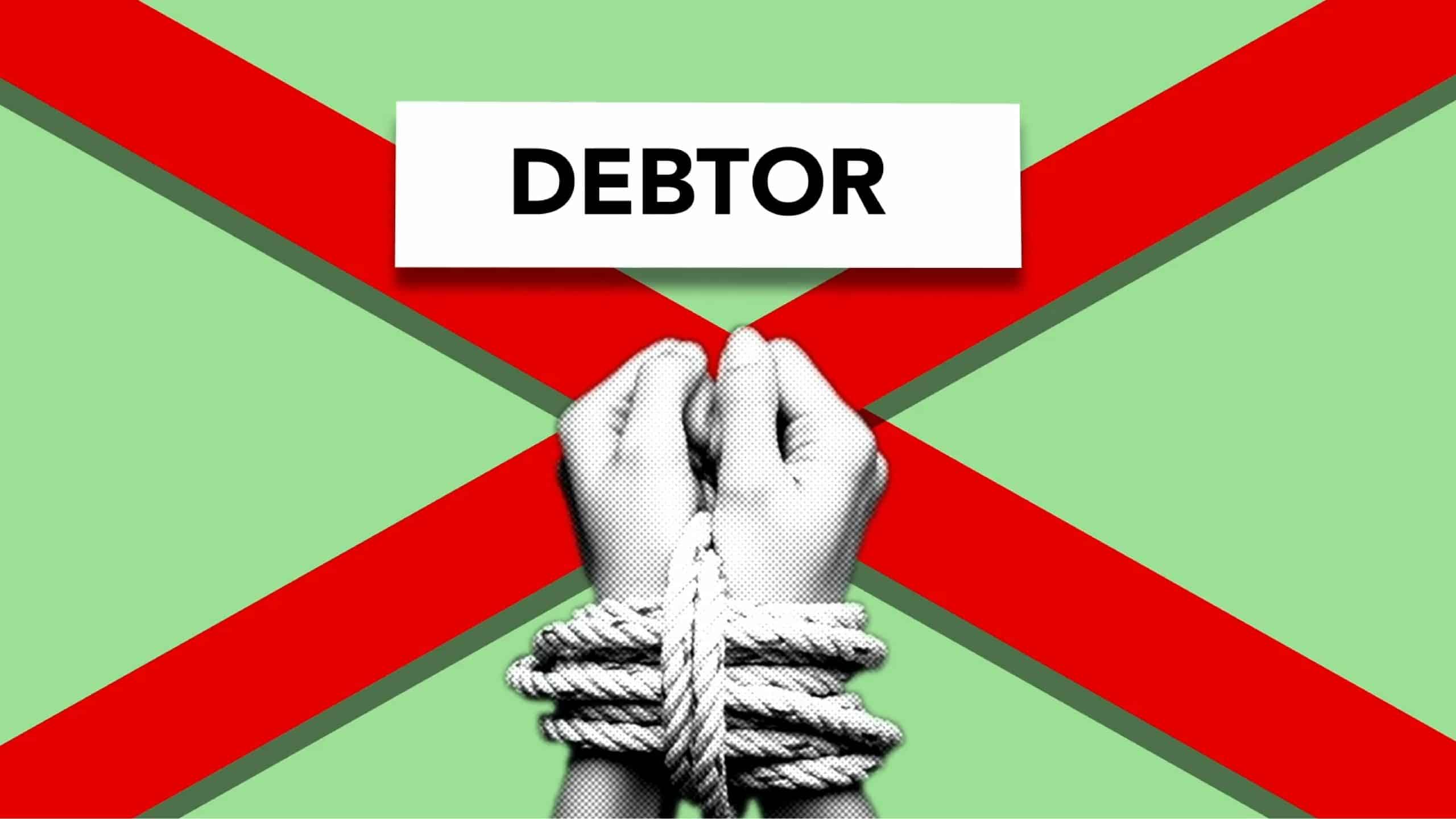The dua to be saved from debt

عَنْ عَبْدِ اللَّهِ بْنِ عَمْرِو بْنِ الْعَاصِ، أَنَّ رَسُولَ اللَّهِ صلى الله عليه وسلم كَانَ يَدْعُو بِهَؤُلاَءِ الْكَلِمَاتِ “ اللَّهُمَّ إِنِّي أَعُوذُ بِكَ مِنْ غَلَبَةِ الدَّيْنِ وَغَلَبَةِ الْعَدُوِّ وَشَمَاتَةِ الأَعْدَاءِ ” . رواه النَّسائي.
‘Abdullah bin ‘Amr (may Allah be pleased with him) narrated that Allah’s Messenger (peace be upon him) used to say*:
“O Allah, I seek refuge in You from being overcome by debt, from being overpowered by the enemy, and from the enemy rejoicing over my misfortunes.” [Nasa’i]
*the expression means he used to repeat it; it’s not a one off supplication.
Did the Prophet (peace be upon him) have debts?
In this very short, precise and comprehensive supplication, the Prophet (peace be upon him) is asking Allah for protection from three specific things. Firstly not to be overcome by debt. He himself had debts on many occasions in his life and even before he passed away his shield was taken as security for some wheat he bought from a Jewish seller. So it was a debt.
In the story of Jabir bin Abdullah, the Prophet (peace be upon him) bought a camel and he did not give him cash, so it was a debt. Later he paid him. However he was never overcome by debt i.e. it was manageable amounts that were due. Thus he was seeking refuge in Allah from debts that are beyond your means and become unmanageable, and spiral out of control.
Do not borrow for luxury when you cannot afford it
It is haram to take loans when you know you don’t have the means to pay them back. If it is beyond your capability and financial means, yet you ignore this and take out a loan for the sake of buying luxury items or for leisure, then you put yourself, your family, your reputation, your career, and your record at risk. Acquiring luxury for the sake of it, to impress others or just for pleasure which you cannot afford is haram.
It is permissible to borrow for needs and necessity
This is not the case if you are buying food for your family – if you don’t have enough but you are confident that you can repay the credit by the end of the month for example is fine, and this is quite common. Many people buy from their local shops on account. They buy products on credit and then pay it back at the end of the month.
Borrowing without necessity when it is beyond your means is haram. The Prophet (peace be upon him) was teaching us not to go beyond our means, and to ask Allah to protect us from this.
A holiday is not a necessity. Don’t get yourself into debt for a holiday. If you can repay it, then that is your choice but if you know that you cannot repay this don’t get into this situation. It will be haram for you.
The Prophet (peace be upon him) taught us how to protect ourselves and other people’s properties by not wasting their wealth on our luxury and say, ‘Hard luck, I cannot pay you. Do whatever you want.’ Had this been known to the lender he would never have lent you this money. This is deception. Those who accumulate haram should expect punishment from Allah Almighty and Allah will at least take the barakah (blessing) out of their money and they will pay the price painfully.
Borrowing to go for Hajj
Recently we have seen in some banks offering wedding loans and Hajj packages for those who can’t afford to go to hajj. They are sold the Hajj on credit which they would have to pay over five to ten years. This is wrong. Hajj is only an obligation for those who can afford it.
وَلِلَّهِ عَلَى ٱلنَّاسِ حِجُّ ٱلْبَيْتِ مَنِ ٱسْتَطَاعَ إِلَيْهِ سَبِيلًۭا ۚ ٩٧
Pilgrimage to this House is an obligation by Allah upon whoever is able among the people. (3:97)
One should not put themselves in debt, as they might not be able to pay it back.
Modernity and the problem of debt
The condition of modernity is being in debt. It is our new slavery – from the time you go to the university, you become a slave to your student loan, then you graduate, you are a slave to the getting on the property ladder which is very, very difficult these days. Once you have a mortgage you are in a lifelong debt which is exacerbated when you furnish your house. You are further and further entrenched and sink into slavery and debt. And when you buy a car…etc.
We need to break this cycle and start structuring financial products in a different way; start thinking in a different way rather then being enslaved to the system. I’m not suggesting that I have the solution now, but I’m saying let’s think about new solutions rather than just floundering in this situation.
Debt can lead to lies
‘A’isha (may Allah be pleased with her) said that the Prophet (peace be upon him) used to say in his prayer, Allahumma inni a’oodhi bika min al-ma’tham wa’l-maghram:
“O Allah, I seek refuge with You from sin and heavy debt.” Someone said to him: “How often you seek refuge from heavy debt!” He said: “When a man gets into debt, he speaks and tells lies, and he makes a promise and breaks it.” (Bukhari and Muslim)
The Prophet (peace be upon him) was describing how debt leads to lies to cover up the fact that the debtor cannot pay the debt back. He will keep making false promises and breaking them: ‘Just three months, I promise you, I will pay it.’ When he knew he could not repay it, whey did he take out this loan? It was a desire for immediate gratification with no thought of the future. It was out of a reckless lack of responsibility or consideration for the one who lent it.
The gravity of being in debt
Muhammad ibn Jahsh (may Allah be pleased with him) said:
We were sitting with the Messenger of Allah (peace be upon him) when he raised his head towards the sky, then he put his palm on his forehead and said: “Subhanallah! What a strict issue has been revealed to me!” We remained silent and were afraid. The following morning I asked him, “O Messenger of Allah, what is this strict issue that has been revealed?” He said, “By the One in Whose hand is my soul, if a man were killed in battle for the sake of Allah, then brought back to life, then killed and brought back to life again, then killed, and he owed a debt, he would not enter Paradise until his debt was paid off.” [Nasa’i]
The case of necessity is a different story. When it is situation of life or death, or for a very serious matter.
Consider how you spend
The Prophet (peace be upon him) taught us that we should rethink our spending patterns. Even if something is available in the market it doesn’t mean you have to buy it. These days brokers may forge any documents for clients to borrow money. The liability will be on them and this is completely wrong.
In the hadith Abu Hurayrah (may Allah be pleased with him) narrated that the Prophet (peace be upon him) said:
عَنِ النَّبِيِّ صلى الله عليه وسلم قَالَ “ مَنْ أَخَذَ أَمْوَالَ النَّاسِ يُرِيدُ أَدَاءَهَا أَدَّى اللَّهُ عَنْهُ، وَمَنْ أَخَذَ يُرِيدُ إِتْلاَفَهَا أَتْلَفَهُ اللَّهُ ”. رواه البخاري.
“Whoever takes the money of the people with the intention of repaying it, Allah will repay it on his behalf, and whoever takes it in order to spoil it, then Allah will spoil him.” (Bukhari)
Allah will repay it on his behalf, means Allah will help him to repay it.

The dangers of borrowing
These hadith are very serious. The Prophet (peace be upon him) is saying here that the one who wants to take people’s money and spend it and not return it will be ruined. It’s very dangerous and haram. This hadith is showing us the limits – when to take debt and when not to. The default position is to avoid getting into debt unless there’s a need or necessity. Necessity is number one, need is two, and for luxury it is not allowed unless you know that you can repay it easily.
Being saved from the rejoicing of enemies
Then the Prophet (peace be upon him) in the hadith asked Allah Almighty to save him from being overpowered by the enemy. In his lifetime he faced one defeat though He was victorious many times. Defeat is bitter. Therefore the Prophet (peace be upon him) was asking Allah not to make him taste the bitterness of defeat from his enemies.
To be humiliated by your enemies is a situation no one wants to experience and even worse to have your enemy laugh at your pain. An enemy is not just on the battlefield but it can be somebody who’s close to you.
If someone is laughing at your pain then it’s a clear sign that he’s not your friend – he’s an enemy. Those who are happy when you are sad are not your friends. Those who are happy when you are ill are not friends. Those who are happy when you are in pain are enemies not friends.
The Prophet (peace be upon him) therefore taught us this dua so we can ask Allah to protect us against love of the dunya and the humiliation of defeat.
Shaykh Haytham Tamim – Sunday Hadith Class (1349) 11th June 2023
Trascribed by Rose Roslan
- The truth is more powerful than lies
- Does a bride’s wali have to be Muslim?
- Is is permissible to lead a salah split over different rooms?
- Global IT outage. When systems go down…
- The concept of worship. What are ibadah and ihsan – and how do they lead to self development?
Recommended Posts

The truth is more powerful than lies
July 26, 2024

Global IT outage. When systems go down…
July 19, 2024

